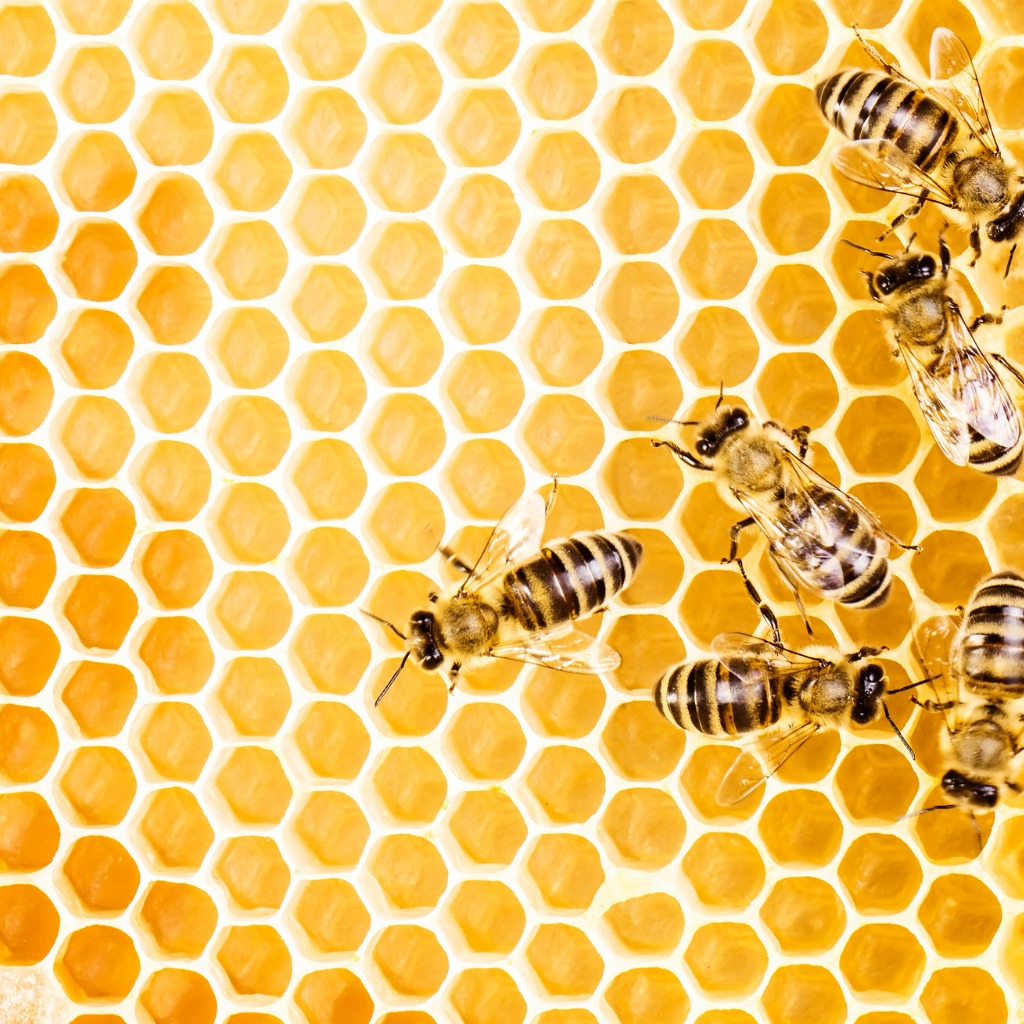
'왜 벌집 군락이 중요한가?'
"당신이 그 즙이 많은 사과를 베어 물거나 아보카도를 토스트에 바를 때, 그것이 어떻게 여기까지 왔는지 생각해 본 적이 있나요? 그 답은 작지만 강력한 곤충, 바로 겸손한 벌에 있습니다. 이 윙윙거리는 곤충들은 작물의 수분을 돕고 우리의 식량 시스템을 번창하게 하는 데 필수적입니다. 그러니 벌 군집의 중요성과 그들의 노력이 농업을 넘어 어떻게 확장되는지 탐구해 봅시다."
벌 군집과 그 중요성
꿀벌은 단순히 꿀을 생산하는 것 이상의 중요한 역할을 합니다. 이 부지런한 생물들은 작물과 다른 식물의 수분에 중요한 역할을 합니다. 꿀벌이 없다면 우리의 식량 공급은 크게 줄어들 것입니다.
하나의 군체에는 세 종류의 벌이 있습니다: 여왕벌, 수벌, 그리고 일벌입니다.- 여왕은 짝짓기하고 알을 낳을 수 있는 유일한 암컷입니다.
- 드론은 여왕벌과 짝짓기하는 것이 유일한 목적인 수벌입니다.
- 일꾼들은 먹이를 모으고, 벌집을 짓고, 어린 벌들을 돌보는 불임 암컷들입니다.

하지만 꿀벌의 중요성은 무엇인가요?
벌 군집과 수분
벌은 꿀을 만들기 위해 꽃에서 꿀을 수집합니다. 꿀을 수집하는 동안, 그들은 또한 한 꽃의 수술(수컷 생식 기관)에서 다른 꽃의 암술(암컷 생식 기관)로 꽃가루를 옮깁니다.
한 식물에서 다른 식물로 꽃가루를 옮기는 이 과정은 수분이라고 하며, 식물 번식에 필수적입니다.
하나의 벌집은 최대 60,000마리의 벌을 가질 수 있으며, 꽃가루를 모으는 동안 연간 최대 55,000마일을 여행할 수 있습니다. 하루에 벌 한 마리는 최대 2,000개의 꽃을 방문할 수 있습니다!
"벌은 식물을 수분할 수 있는 유일한 동물이 아니지만, 농작물의 가장 중요한 수분 매개체입니다."
그들은 또한 꿀과 꽃가루를 찾는 동안 다양한 종류의 꽃을 방문하여 다양한 식물들이 수분될 수 있도록 돕습니다.

꿀벌 군집과 식량 생산
세계 식량 작물의 약 75%가 동물 수분 매개체에 의존하며, 이 중 약 3분의 1은 벌이 수분합니다. 여기에는 대부분의 과일, 채소, 견과류가 포함됩니다.
식량 생산에서의 중요성 외에도, 벌은 면화, 아마, 담배와 같은 상업적 목적으로 사용되는 다른 작물들을 수분합니다.
꿀벌 군집과 생물다양성
"벌은 농부들에게만 중요한 것이 아니라 전 세계 생물다양성을 유지하는 데 중요한 역할을 합니다."
벌은 식물을 수분시킴으로써 생태계가 건강하고 다양하게 유지되도록 돕습니다. 사실, 세계의 꽃 피는 식물 종의 거의 90%가 벌과 같은 수분 매개체에 의존하여 생존한다고 추정됩니다.
벌은 또한 야생화와 우리 생태계의 기초를 이루는 다른 식물들에게 필수적입니다. 이러한 식물들은 새, 작은 포유류, 파충류를 포함한 많은 동물들에게 먹이와 서식지를 제공합니다. 벌이 이들을 수분하지 않으면, 이러한 식물들은 곧 사라질 것이고, 그에 의존하여 생존하는 동물들도 뒤따라 멸종할 것입니다.

꿀벌 군집과 꿀 생산에서의 역할
일벌들은 발달 중인 유충을 먹이고 돌봅니다. 부화한 후, 이 일벌들은 나이에 따라 군체 내에서 다양한 역할을 맡게 됩니다. 일부 어린 일벌들은 벌집 청소를 담당하는 "집벌"이 됩니다.
다른 벌들은 "현장 벌"이 되어 꿀과 꽃가루를 수집할 것입니다.
들판의 벌들은 "꿀 위장"에 꿀을 저장하고 벌집으로 가져오면, 집 벌들이 효소를 사용하여 복합 당을 단순 당으로 분해합니다.
집 벌들은 날개를 부채질하여 꿀에서 물을 증발시켜 꿀을 만듭니다. 이 꿀은 벌과 여왕벌 모두의 먹이로서 벌집의 세포에 저장됩니다.
꿀벌 한 마리는 평생 동안 단지 1/12 티스푼의 꿀만 생산합니다.
비록 적은 양이지만, 그것은 군집의 생존에 필수적입니다. 건강한 벌 군집은 연간 최대 60파운드의 꿀을 생산할 수 있으며, 이는 양봉가들에게 귀중한 수입원이 됩니다.
꿀벌은 또한 상업적으로 꿀을 생산하는 유일한 벌의 종으로, 전 세계 경제에서 중요한 부분을 차지하고 있습니다.
따라서 꿀벌 군집의 손실은 경제적으로도 상당한 영향을 미칠 것입니다.

꿀벌 군집 감소와 그 영향
최근 몇 년간 벌집의 급격한 감소가 발생하여 농업 및 기타 산업에 심각한 영향을 미치고 있습니다.
수분은 많은 작물에 필수적이며, 벌은 주요 수분 매개체입니다. 벌이 충분하지 않으면 작물 수확량이 감소하고 과일과 채소의 가격이 상승할 것입니다.
이는 세계 식량 공급과 경제에 큰 영향을 미칠 수 있습니다.
꿀벌 군집의 감소는 서식지 손실, 살충제 사용, 기생충, 기후 변화 등 여러 요인으로 인해 커져가는 우려 사항입니다.
살충제는 벌집의 감소와 관련이 있으며, 이는 벌을 독살하고 벌의 항해 및 번식에 방해가 될 수 있습니다.
도시화 및 외래종 확산과 같은 다른 인간 활동도 벌집의 감소에 기여할 수 있습니다.
건강한 벌 군집을 통한 지속 가능한 농업 지원
지속 가능한 농업은 우리 행성의 미래를 위한 중요한 우선 과제입니다. 2050년까지 세계 인구가 97억에 이를 것으로 예상됨에 따라, 우리는 더 적은 자원으로 더 많은 식량을 생산할 방법을 찾아야 합니다. 그래서 벌이 매우 중요한 이유입니다!
다행히도, 우리가 벌이 번성하도록 돕기 위해 할 수 있는 몇 가지 일이 있습니다:
- 우리의 정원과 마당에 벌 친화적인 꽃과 식물을 심으세요.
- 꿀벌에 해로운 살충제 사용을 피하세요.
- "벌을 위한 서식지를 만들거나 유지하기 위해 잔디의 일부를 깎지 않거나 야생화 초원을 조성하세요."
- 꿀벌을 죽이는 살충제를 사용하지 않는 유기농 농부들을 지원하세요.
- 양봉가가 되어 자신의 벌집을 관리하는 것을 고려해 보세요.
'꿀벌의 중대한 중요성'
그러므로 보시다시피, 벌의 중요성은 널리 퍼져 있습니다. 필요한 보호가 없다면, 그들의 손실은 전 세계에 해로운 영향을 미칠 수 있습니다.
"이 버저들을 구하기 위해 무엇을 하시겠습니까?"

